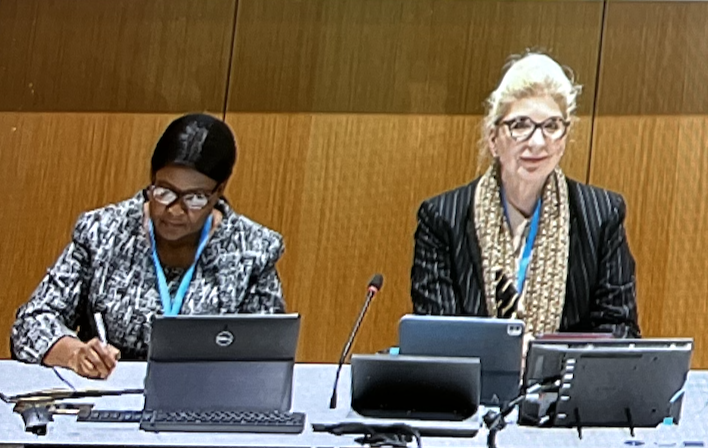WHO Health Data Collaborative Meeting: high level overview
Last week, the World Health Organization held an in-person meeting of its health data collaborative leadership, its first face-to-face meeting of this group in four years. WPF attended as a constituency co-chair. Attendees included: members of the Ministries of Health and partner representation from Kenya, Malawi, Cameroon, Botswana, and Nepal; regional institutes’ representatives from KEMRI Welcome Institute, Kenya; Institut Pasteur, Senegal; India Institute of Public Health; and co-chairs of working groups and constituencies. The World Privacy Forum is a co-chair, along with the U.S. Centers for Disease Control (CDC), of the World Health Organization’s Research, Academia, and Technical constituency. This is a vibrant constituency at the WHO Health Data Collaborative that is part of the larger group working on various aspects of global health information systems, from routine health information systems to data governance to GIS tagging and privacy, among other key health data topics.
Pam Dixon, World Privacy Forum, Paban Ghimire, Nepal WHO country office (not pictured), and Onalenna SEITIO-
KGOKGWE, Deputy Permanent Secretary Health Services Monitoring, Evaluation and Quality Assurance MOHW, Botswana, leading a discussion of health data ecosystems at the WHO health data collaborative meeting in Geneva, Switzerland.
The two days of meetings were extremely rich, made particularly so with the country representatives present. Of great interest were discussions around routine health information systems and their ongoing development, and from Malawi in particular, where there had been a WHO mission earlier in the year, there were many discussions of practical takeaways and on-the-ground developments that were extremely valuable.
One issue in particular stood out, which was how geospatial data tagging and health data systems are being utilized together in Malawi, and how an increasing number of entities are now producing and using these data in maturing formats. Data governance has always been critically important in health information ecosystems, but efficient, effective systems of governance are especially necessary to ensure that standards, policies, institutional arrangements and practices are well-defined, with mechanisms for tracking compliance when health information ecosystems are connected with geospatial tagging. Geospatial tagging of health records and adjoining information (such as road accessibility and health provider locations) is not a “tomorrow technology.” It is here today, and it will require a lot of governance thought, discussion, and collaborative work with ongoing systems in place for auditing and improvement. An adjoining conversation of high interest was regarding the interactions of national identity ecosystems with health ecosystems and their governance.
WPF will continue to post updates about our work with the collaborative.
WHO offices in Geneva, Switzerland, 2022


